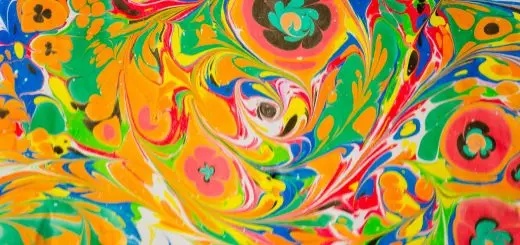Vedic Astrology: What Your Birth Chart Says About You

Looking for more amazing products? Check out our online store and explore our collection here! Happy shopping!
Before diving in, please note: This post is for informational purposes only. If you’d like to know more about how we approach topics, feel free to check out our friendly Disclaimer Page.
Hey there, amazing readers! 
We’re committed to delivering quality posts, and your support (even just sticking around despite the ads) means everything to us. So, bear with us, and thanks for helping us keep the good vibes rolling. Now, on to the fun stuff!
TRANSLATE BUTTON AT THE END OF THE ARTICLE
A Quick Overview
Vedic astrology, rooted in ancient Indian traditions, offers profound insights into our personalities and life paths.
It delves into the positions of celestial bodies at the moment of our birth, painting a unique picture of who we are and what we can become.
If you’ve ever found yourself gazing at the stars and wondering about your destiny, you’re not alone.
Vedic astrology invites you to explore your birth chart, a celestial map that reveals your strengths, weaknesses, and potential life experiences.
Let’s journey through the essentials of Vedic astrology and discover what your birth chart says about you.
Understanding Vedic Astrology: A Brief Introduction
Vedic astrology, or Jyotish, is an ancient system that dates back thousands of years.
It forms an integral part of the Vedic scriptures, which are some of the oldest texts known to humanity.
Unlike Western astrology, Vedic astrology places a greater emphasis on the moon’s position and the lunar cycle, offering a more rounded view of personality traits and life events.
One of the core beliefs in Vedic astrology is that our lives are influenced not just by celestial bodies but also by karma—the sum of our past actions.
The positions of planets and stars at the time of our birth are said to reflect our karmic journey.
This means that understanding your birth chart can provide insights into your life’s purpose, challenges, and opportunities.
Vedic astrology is not simply fortune-telling; instead, it’s a tool for self-discovery and personal development.
By decoding the cosmic influences in your life, you can navigate challenges more effectively and harness your strengths.
What is a Birth Chart? The Celestial Map of You
Your birth chart, or Janam Kundali, is like a cosmic fingerprint.
It’s a detailed map that outlines the positions of planets and zodiac signs at the exact moment of your birth.
Creating this chart requires your birth date, time, and location.
A birth chart is divided into twelve houses, each representing different aspects of life—such as career, relationships, and health.
By interpreting these houses and their corresponding planetary placements, astrologers can provide insights into various facets of your life.
Think of your birth chart as a blueprint.
Just like an architect uses blueprints to design a building, you can use your birth chart to design the life you want.
It reveals your innate tendencies, emotional patterns, and life lessons.
The Importance of Nakshatras in Your Chart
In Vedic astrology, Nakshatras are lunar mansions that play a vital role in shaping your personality.
There are 27 Nakshatras, each represented by a specific set of stars.
The Nakshatra in which the moon was positioned at your birth holds particular significance.
Each Nakshatra has its own symbolism and characteristics, influencing your emotional nature, instincts, and intuition.
For instance, if your moon is in the Rohini Nakshatra, you might be nurturing and creative, while being born under the Kritika Nakshatra could make you assertive and pioneering.
Understanding your Nakshatra can provide deeper insights into your personality beyond what your sun sign reveals.
It often highlights your emotional responses and subconscious tendencies, making it a crucial element of your astrological profile.
Sun Sign vs. Moon Sign: What’s the Difference?
When discussing astrology, many people refer to their sun sign.
This sign represents your core identity, ego, and conscious self.
However, in Vedic astrology, the moon sign is equally, if not more, important.
Your moon sign reflects your emotional world and inner self.
It describes how you react emotionally and your instincts.
For instance, a person with a sun sign in Aries but a moon sign in Cancer might be adventurous on the outside but deeply sensitive and nurturing on the inside.
Understanding both your sun and moon signs can give you a fuller picture of who you are.
They represent different dimensions of your personality—one is your conscious self, while the other reveals your emotional core.
The Role of Planets in Influencing Your Personality
In Vedic astrology, each planet carries unique energies and influences different aspects of our lives.
Here’s a quick rundown of what some key planets represent:
Sun: Represents your ego, vitality, and individuality.
Moon: Reflects emotions, instincts, and nurturing qualities.
Mars: Associated with ambition, drive, and conflict.
Mercury: Governs communication, intellect, and reasoning.
Jupiter: Symbolizes growth, wisdom, and good fortune.
Venus: Relates to love, beauty, and relationships.
Saturn: Represents discipline, responsibility, and restriction.
These planetary influences interact with your sun sign, moon sign, and Nakshatras, creating a unique personality profile.
Planets can be in a favorable or challenging position in your chart, affecting how their energies manifest in your life.
Ascendant Sign: The Mask You Wear in Life
Your ascendant sign, or rising sign, is another critical element in your birth chart.
It represents the constellation that was rising on the eastern horizon at the time of your birth.
Your ascendant sign shapes your outward behavior and how others perceive you.
For example, someone with a Leo ascendant might come across as confident and charismatic, even if their sun and moon signs suggest a more reserved nature.
Knowing your ascendant can help you understand the first impression you make on others and how you navigate social situations.
Think of your ascendant as your personal brand.
It influences how you present yourself to the world and how the world responds to you.
Elements and Doshas: Balancing Your Energies
In Vedic astrology, the five elements—earth, water, fire, air, and ether—play a crucial role in shaping our personalities.
Each element corresponds to specific traits and characteristics.
For instance, if you have a predominance of fire in your chart, you might be passionate and energetic, whereas a strong water influence may make you emotional and intuitive.
Additionally, Vedic astrology identifies three Doshas: Vata, Pitta, and Kapha.
These represent different energies derived from the elements.
Balancing these energies can lead to greater harmony in your life.
Understanding your elemental balance can aid in personal growth.
For instance, if you’re predominantly Pitta (fire), you might need to work on cultivating more calming, cooling practices to maintain equilibrium.
Houses in Your Birth Chart: Where Life Happens
The twelve houses in your birth chart each represent different areas of life.
Here’s a glimpse at what each house signifies:
1st House: Self, identity, and physical appearance.
2nd House: Finances and personal resources.
3rd House: Communication and siblings.
4th House: Home, family, and emotional foundation.
5th House: Creativity, children, and romance.
6th House: Work, health, and daily routines.
7th House: Partnerships and marriage.
8th House: Transformation and shared resources.
9th House: Philosophy, travel, and higher learning.
10th House: Career and public life.
11th House: Friendships and aspirations.
12th House: Spirituality and hidden matters.
Understanding the houses in your birth chart can help you identify the areas of life that may be more prominent or present challenges.
Each house tells a story about your experiences and growth opportunities.
Transits and Dasha: Timing is Everything!
In Vedic astrology, the positions of planets are not static.
They move through the sky, and their transiting positions can have significant effects on our lives.
Understanding these transits can help you prepare for upcoming challenges or opportunities.
Dasha is another critical concept.
It refers to planetary periods that dictate the timing of various life experiences.
Each Dasha is ruled by a specific planet, and the effects of that planet will dominate during its period.
By observing transits and Dasha, you can gain insights into when to take action, when to lay low, or when to embrace new opportunities.
It’s like having a cosmic calendar that can guide you through life’s ups and downs.
Unlocking Your Strengths Through Vedic Insights
Vedic astrology isn’t just about predicting the future; it’s about understanding yourself.
By studying your birth chart, you can identify your strengths and weaknesses.
This awareness can empower you to make conscious choices in life.
For example, if your chart indicates a strong Jupiter influence, you may find success in fields related to teaching or philosophy.
Alternatively, if you have a challenging aspect involving Saturn, understanding it can help you develop resilience and discipline.
Astrology can serve as a guide, helping you navigate life’s journey with greater confidence and clarity.
Embracing the insights from your chart allows you to harness your potential and overcome obstacles.
Common Misconceptions About Vedic Astrology
Many misunderstandings surround Vedic astrology.
One common myth is that it is purely deterministic—that it predicts a fixed future.
In reality, astrology offers insights and guidance, but it’s up to us to make choices and shape our destinies.
Another misconception is that Vedic astrology is overly complicated and inaccessible.
While it can seem intricate, with practice, anyone can learn to interpret their birth chart.
You don’t need to be an expert; simply being curious and open-minded can lead to valuable discoveries.
Learning about Vedic astrology can be empowering.
It encourages self-reflection and personal growth, enriching our understanding of ourselves and our relationships.
How to Get Started with Reading Your Birth Chart
Ready to dive into the world of Vedic astrology?
Here’s how to begin:
Gather Your Birth Information: You’ll need your birth date, time, and location.
Create Your Birth Chart: Use an online tool or consult an astrologer to generate your Janam Kundali.
Study the Elements: Familiarize yourself with the significance of planets, houses, and signs.
Learn About Nakshatras: Research your moon’s Nakshatra for deeper insights.
Explore Transits and Dasha: Keep track of current planetary positions and learn how they affect your chart.
Join a Community: Engage with others interested in astrology.
Sharing insights can enhance your understanding.
Practice: The more you explore, the more comfortable you’ll become with interpreting your chart.
Embarking on this journey can be incredibly rewarding.
As you explore your birth chart, you’ll likely find layers of meaning that resonate with your personal experiences.
Conclusion
Vedic astrology is a powerful tool for self-exploration and personal growth.
Your birth chart serves as a unique map of your personality, guiding you in understanding your strengths, challenges, and life purpose.
By embracing the insights from your chart, you can navigate life’s complexities with greater awareness and intention.
Whether you’re a seasoned astrologer or a curious newbie, Vedic astrology invites you to connect with the cosmos and uncover the beautiful tapestry of your life.
So, go ahead—dive into the stars and discover what they have to say about you!

The Enlightenment Journey is a remarkable collection of writings authored by a distinguished group of experts in the fields of spirituality, new age, and esoteric knowledge.
This anthology features a diverse assembly of well-experienced authors who bring their profound insights and credible perspectives to the forefront.
Each contributor possesses a wealth of knowledge and wisdom, making them authorities in their respective domains.
Together, they offer readers a transformative journey into the realms of spiritual growth, self-discovery, and esoteric enlightenment.
The Enlightenment Journey is a testament to the collective expertise of these luminaries, providing readers with a rich tapestry of ideas and information to illuminate their spiritual path.
Our Diverse Expertise
While our primary focus is on spirituality and esotericism, we are equally passionate about exploring a wide range of other topics and niches 

To ensure we provide the most accurate and valuable insights, we collaborate with trusted experts in their respective domains 
Our blog originally focused on spirituality and metaphysics, but we’ve since expanded to cover a wide range of niches. Don’t worry—we continue to publish a lot of articles on spirituality! Frequently visit our blog to explore our diverse content and stay tuned for more insightful reads.
Hey there, amazing reader! 
Check out our store here and take a peek at some of our featured products below! Thanks for being awesome!











